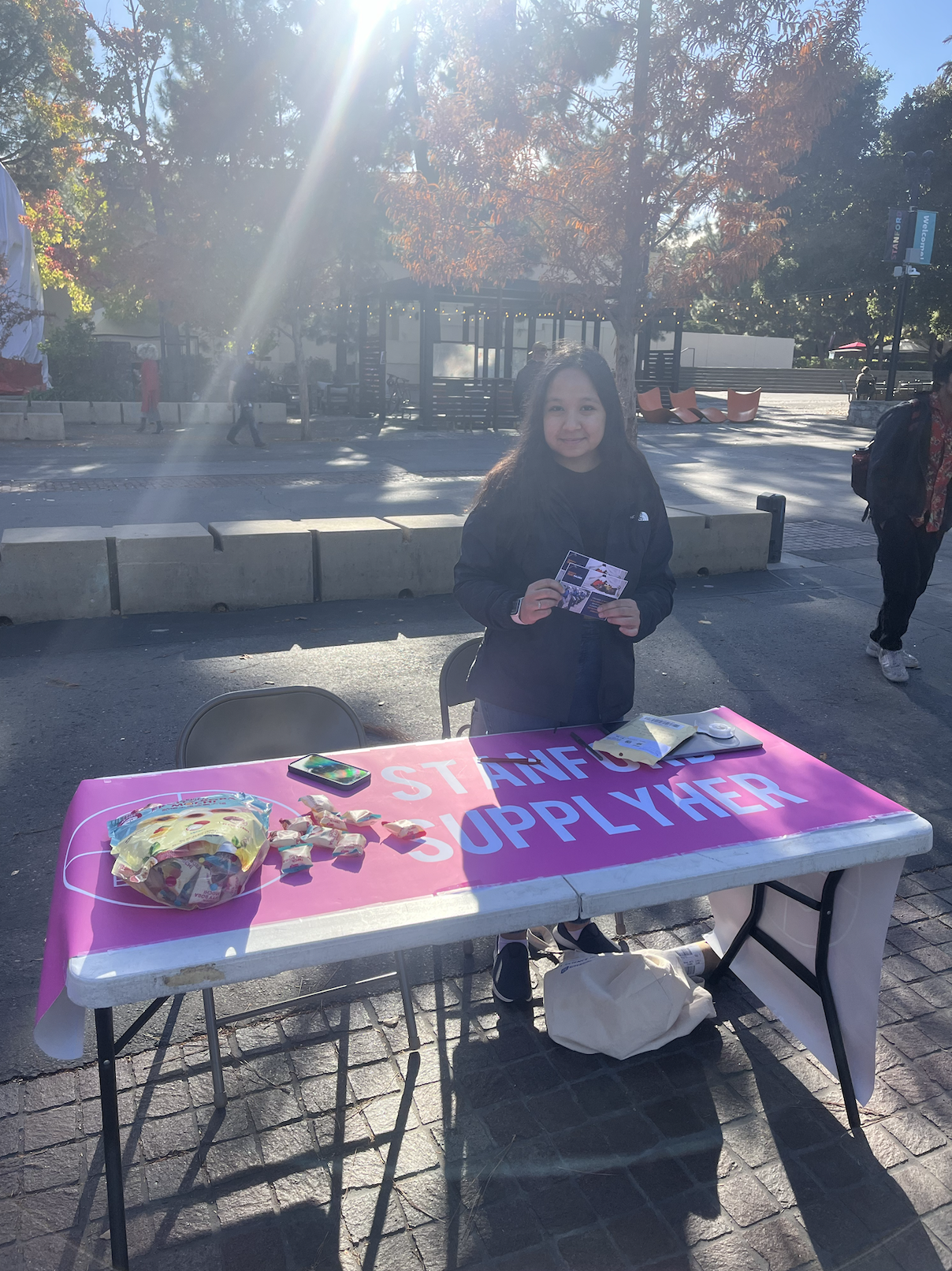After taking an introductory course in global health last winter, Yashaswi Bista ’27, member of Stanford SupplyHer, was empowered to take action against malaria — a deadly yet easily preventable and curable disease that can be treated with insecticides and other methods.
In 2022, the World Health Organization reported an estimated 249 million cases of malaria worldwide and 608,000 deaths, marking an increase since pre-pandemic levels. Malaria disproportionately affects refugees, pregnant women and children, who are most susceptible to dying from the disease, according to the United to Beat Malaria website.
Stanford SupplyHer, which brings together students with a passion for art to support women’s health, hosted an event in partnership with United to Beat Malaria to encourage funding for malaria prevention, treatment and research initiatives while tabling at White Plaza last Monday.
“SupplyHer is committed to promoting health equity across all spheres, whether in terms of service or advocacy for those in need,” said Iris Wang ’25, president of SupplyHer. “Knowing that malaria is especially dangerous to pregnant individuals and children makes advocacy for malaria funding and research essential for our mission.”
Although tremendous progress has been made to eliminate malaria over the past century, nearly half of the globe’s population still lives in areas at risk of malaria transmission. In recent years, efforts to eradicate malaria from endemic regions of the developing world, particularly high-burden countries in sub-Saharan Africa, have stalled.
Bista was “inspired to advocate for this pressing issue” due to the effects of climate change on malaria. Climate change is expected to exacerbate the number of cases of malaria as increases in temperature, humidity and rainfall have magnified the number of malaria-carrying mosquitoes at higher altitudes.
“We in the U.S. need to be aware of the impact of global warming on malaria because less developed countries in other parts of the world are disproportionately impacted by our emissions,” Bista said.
Last year, the U.S. experienced its first local outbreaks of malaria since 2003. Infectious disease experts have warned that climate change will spread malaria and other mosquito-borne diseases to areas of the world that were previously deemed malaria-free.
This summer, after discovering the work of United to Beat Malaria, a global grassroots campaign of the UN Foundation, Bista met with her congressional representatives to advocate for malaria treatment and research.
Prior to the creation of a new federal budget for the year, “advocacy is especially important,” Bista said.
For Bista, it’s important “to know the issues that you are trying to advocate for really well, and know how your advocacy is going to work.” She also prioritizes working “with organizations that are legitimate” and “knowing what your work is going towards.”
Prompted by the SupplyHer tabling event, members of the Stanford community wrote to their elected officials in Congress, including U.S. Senators Alex Padilla and Laphonza Butler and U.S. Representative Anna G. Eshoo, to support continued funding for global malaria programs, such as the President’s Malaria Initiative (PMI) and the Global Fund to Fight AIDS, TB and Malaria.
“It’s easy for people to feel like they are powerless with issues as big as malaria — a disease that has been claiming hundreds of thousands of lives every year for centuries — and yet for most of us here in the U.S., it is not something we think about day-to-day. But any person can give input to their decision makers on issues as big as these,” wrote Maegan Cross, Senior Associate of Grassroots Advocacy at United to Beat Malaria. “By sending messages to your elected officials in support of global health funding, you are making sure your voice is heard and your priorities are considered.”
While tabling, Bista encouraged students to visit the United to Beat Malaria website, sign online petitions and reach out directly to their members of Congress regarding the importance of funding for malaria research and treatment.
“From the time I stopped at the table and conversed with Yashaswi about this topic, I became familiar with her passion, care and determination for this cause. She not only helped me to understand the urgency of this issue, but also motivated me to support the cause and do further work to promote it,” said Guillermo Molina ’27.
Bista encouraged other students to become involved in initiatives on campus to spread awareness of malaria and other global health issues.
“Global health is important to me because there are so many health inequities around the world and health itself is important to live a fulfilling life,” Bista said. “Because there are so many health inequities around the world, I want to raise awareness and help people live fulfilling lives.”
